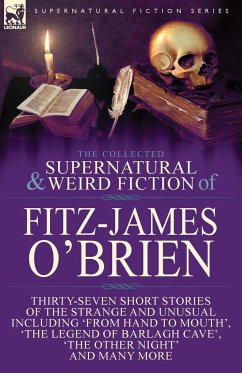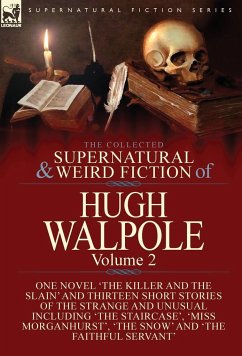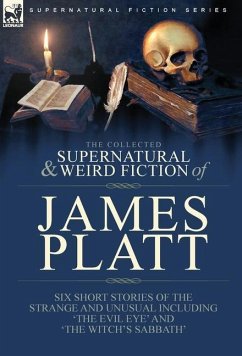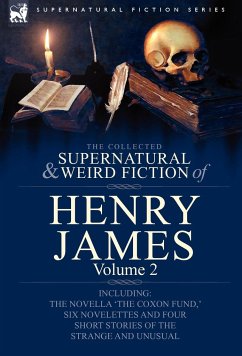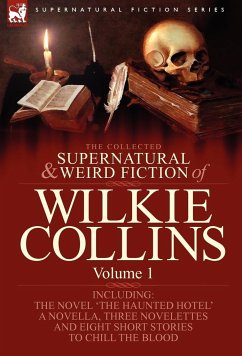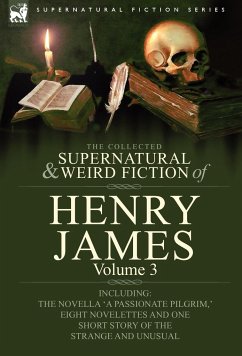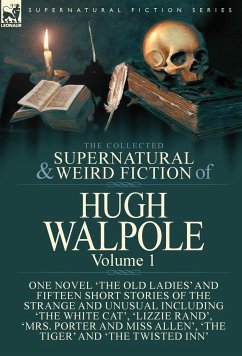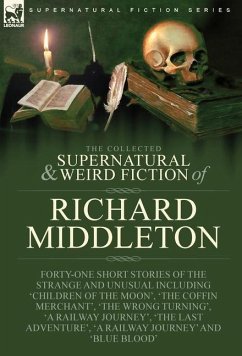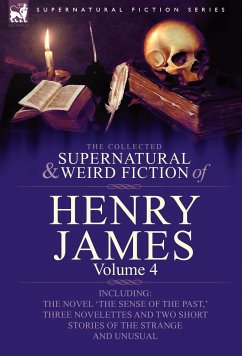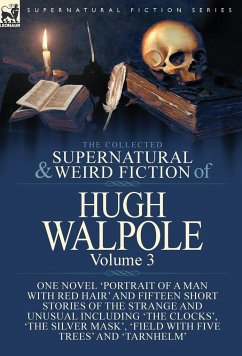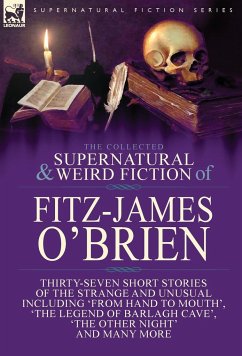
The Collected Supernatural and Weird Fiction of Fitz-James O'Brien
Thirty-Seven Short Stories of the Strange and Unusual Including 'From Hand to Mouth', 'The Legend of Barlagh Cave', 'The Other Night', and Eight Poems Including 'The Ghost', 'Sir Brasil's Falcon' and 'The Lost Steamship'
Versandkostenfrei!
Versandfertig in über 4 Wochen
43,99 €
inkl. MwSt.
Weitere Ausgaben:

PAYBACK Punkte
22 °P sammeln!
Writer, soldier and innovator in the fiction of the weird and other worldly This well regarded author of weird and supernatural tales was born in Cork, Ireland in 1826. Originally Michael O’Brien it is known he had journalistic experience and had possibly served in the British Army. Probably to ensure distinction he changed his name to Fitz-James O’Brien and emigrated to the United States of America in 1852. There he contributed writings to a number of periodicals including ‘The Lantern’, ‘The Home Journal’, ‘The New York Times’, ‘Harper’s Magazine’, ‘Vanity Fair’ and...
Writer, soldier and innovator in the fiction of the weird and other worldly This well regarded author of weird and supernatural tales was born in Cork, Ireland in 1826. Originally Michael O’Brien it is known he had journalistic experience and had possibly served in the British Army. Probably to ensure distinction he changed his name to Fitz-James O’Brien and emigrated to the United States of America in 1852. There he contributed writings to a number of periodicals including ‘The Lantern’, ‘The Home Journal’, ‘The New York Times’, ‘Harper’s Magazine’, ‘Vanity Fair’ and others. The ‘Atlantic Monthly’ published what is possibly most famous story, ‘The Diamond Lens’, a tale that was admired for its quality by H. P. Lovecraft. O’Brien’s ‘From Hand to Mouth’, 1858, has been described as ‘the most striking example of surrealistic fiction to pre-date ‘Alice in Wonderland’. O’Brien also penned early, short science fiction tales of robot rebellion and invisibility. At the outbreak of the American Civil War he joined the federal cause enlisting initially in the 7th New York National Guard before being promoted to the staff of General F. W Lander. He was severely wounded in early 1862, during a skirmish with Confederate forces, and though he lingered for some time he eventually died of tetanus at Cumberland in Maryland. This very substantial collection of O’Brien’s fiction contains thirty-seven short stories of the strange and unusual including ‘From Hand to Mouth’, ‘The Legend of Barlagh Cave’, ‘The Other Night’ and Eight Poems Including ‘The Ghost’, ‘Sir Brasil’s Falcon’ and ‘The Lost Steamship’. Leonaur editions are newly typeset and are not facsimiles; each title is available in softcover and hardback with dustjacket.



